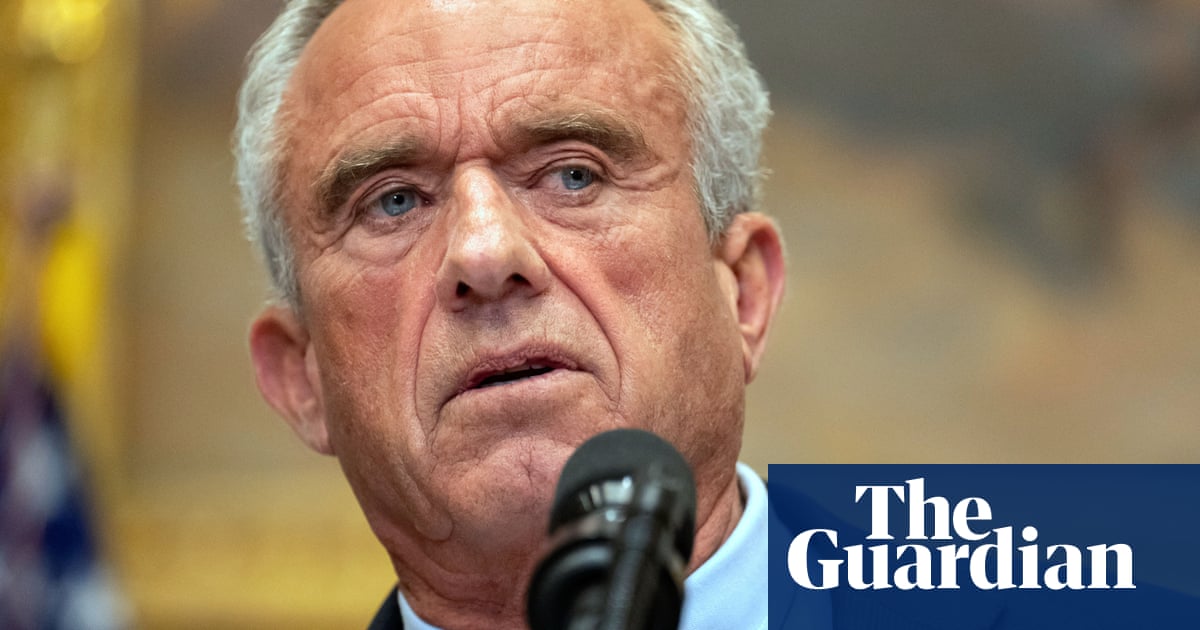The US health secretary,Robert F Kennedy Jr, has revealed that he went swimming with his children in aWashington DCcreek that authorities have said is toxic due to contamination by an upstream, ageing sewer system.
The “Make America healthy again” crusader attracted attention for the Mother’s Day dip in Dumbarton Oaks Park with his grandchildren Bobcat and Cassius, which heposted about on X. He was also accompanied by relatives Amaryllis, Bobby, Kick and Jackson.
Rock Creek, which runs through the federal park, is described as unsafe for swimming or wading because it acts as a runoff for excess sewage and storm water during rain storms.
Studies of streams in the nation’s capital have revealed “chronic elevated levels of Escherichia coli (Ecoli) contamination that exceeded DC’s surface water quality standards”,according to one published in 2021.
The District of Columbia banned swimming in all waterways in 1971,citing“extraordinarily high levels of pollutants from human and animal waste containing bacteria such as salmonella and hepatitis, and viruses”.
Separately,the National Park Servicehas said: “Rock Creek has high levels of bacteria and other infectious pathogens that make swimming, wading, and other contact with the water a hazard to human (and pet) health. All District waterways are subject to a swim ban – this means wading, too!”
Part of the issue is that the District’s combined sewer system was developed before 1900, and – like New York City sewage and rain systems – is designed to combine to ease runoff, bypassing water treatment plants.
In Washington,according to Open Data DC: “Release of this excess flow is necessary to prevent flooding in homes, basements, businesses, and streets. [Combined sewer overflows] are discharged to the Anacostia River, Rock Creek, Potomac River or tributary waters at CSO outfalls during most moderate rain events.”
Kennedy, an avid outdoorsman, had not responded to a request for comment as of publication time, and has not posted on social media about it.
In an interview with Fox News on Sunday, Kennedy described himself as a “renegade”. Joined by other appointees to the federal health agency – including the TV doctor Mehmet Oz, Marty Makary and Jay Bhattacharya – he said: “The entire leadership of this agency are renegades who are, you know, who are juggernauts against convention and who are trying to look for truth, no matter what the cost.”
On Sunday, Kennedy joinedDonald Trumpto unveil anew administration planto lower high US prescription drug prices. He thanked the US president for standing “up to the oligarchs” and took aim at Vermont senator Bernie Sanders, whohasmadedrug pricing a signature issue of his political platform.
“It’s one of these promises that politicians make to their constituents knowing that they’ll never have to do it,” the former 2024 Democratic turned independent presidential candidate said.
Sanders later scoffed at the administration’s plan, saying it “will be thrown out by the courts”.
Kennedy is known for taking risks of a biological kind. Headmittedtotransporting a roadkill bear cubto New York’s Central Park, and his daughter Kick described a childhood adventure when her father transported arotting whale headon top of their car from Nantucket to their Westchester home.
Had Kennedy’s foray into the polluted creek produced ill effects, the probable treatment forEcolipoisoning would not necessarily have benefited much from the administration’s drug cost reduction plan. Common antibiotics used to treatEcoliinfections are typically priced $10 to $30 for a course of treatment.
